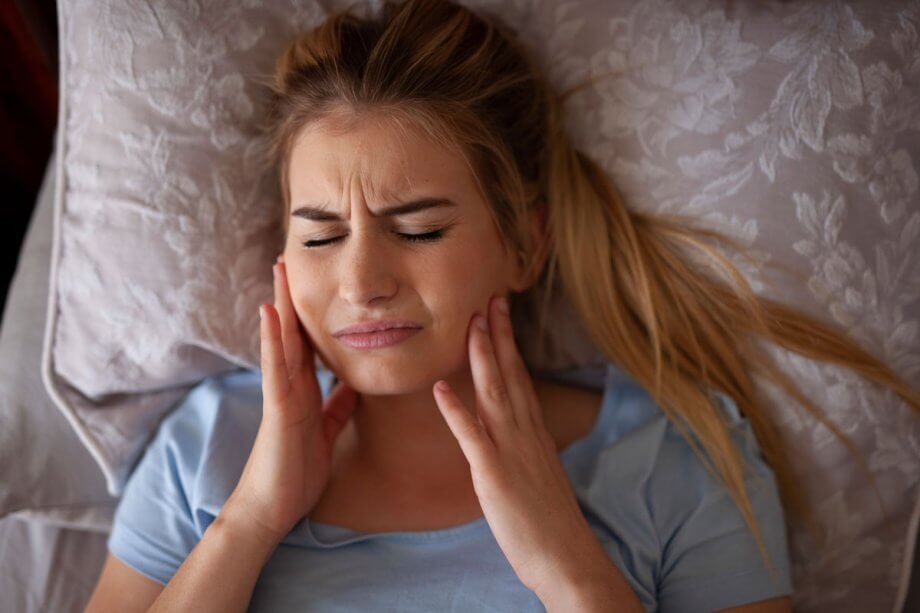Teeth grinding is one of the few bad habits that people have no idea they even have. That’s because it usually occurs at night, while we’re sleeping. The medical term for grinding your teeth is bruxism and it’s a more serious problem than many people seem to believe. So how do you know you’re grinding your teeth at night? And what can you do to stop it? Here’s what you need to know about bruxism.
Signs of Teeth Grinding
You may notice yourself clenching your jaw during the day, but very few of us actually grind our teeth together until we’re asleep. If you experience any combination of these symptoms and there is no other explanation for them, it’s a sign you’re grinding your teeth at night:
- Headaches, especially ones that feel like they’re originating in your temples or jaw.
- Dental problems like chips, cracks, and sensitivity. One of the most common signs of bruxism is teeth that are uniformly small and flat from wear.
- Facial pain and muscle tightness in the jaw, neck, and shoulders.
- Earaches, a common issue because the temporomandibular joint (TMJ) is located near the ear canal.
Teeth grinding and TMJ disorder are closely related. Sustained teeth grinding almost always leads to TMD, although not all TMD is caused by teeth grinding.
Causes of Teeth Grinding
The primary cause of bruxism is stress. If you’re an anxious person or have a lot on your mind, you’re more likely to grind your teeth in your sleep. That said, there are other medical reasons why you might have bruxism. These include:
- Gastric reflux
- Epilepsy
- Orthodontic problems like malocclusion or misaligned teeth
- Genetics
- Certain medications
- Parkinson’s disease
- ADHD
How to Stop Teeth Grinding
Because of the relationship between TMD and bruxism, the first line of treatment for both issues is a night guard, also known as a splint. While there are over-the-counter versions of these mouth guards available, custom-made night guards from our office are a superior option, as the material is both stronger and more comfortable to wear—which is important when you’re trying to sleep! These guards keep your teeth separated so you’re physically unable to grind them. This serves to relax the jaw, easing muscle tension and treating TMD symptoms.
In addition to night guards, there are lifestyle changes you can make to help with bruxism. These include:
- Reducing stress and anxiety, one of the most common underlying causes of teeth grinding. Try incorporating meditation into your day or practice progressive muscle relaxation before bedtime.
- Cutting down on caffeine, particularly in the afternoon and evening. Caffeine can exacerbate the nervous tension that causes bruxism.
- Using warm compresses or taking a hot bath before bedtime to relax your muscles.
- Making a habit of massaging your temples and jaw before you go to sleep at night.
- Skipping gum, chewy candies, and other foods that make your jaw feel sore. Excessive chewing can make muscle tension worse.
Treatment for Teeth Grinding
If you grind your teeth in your sleep, you may need restorative dental procedures to repair the damage in addition to a custom night guard to help you break the habit. Contact us at 781-373-3068 to make an appointment at our Waltham, MA dental practice.

